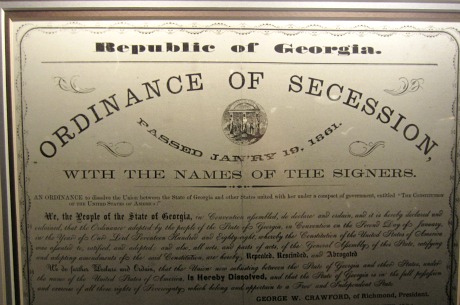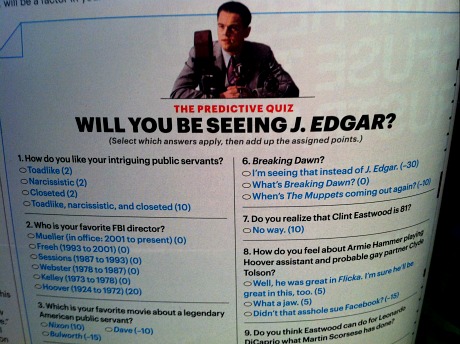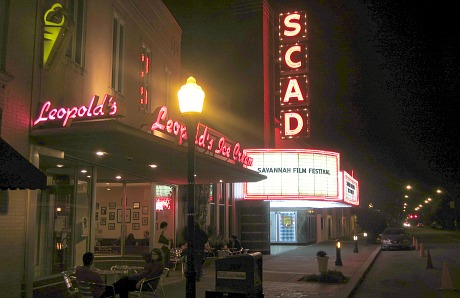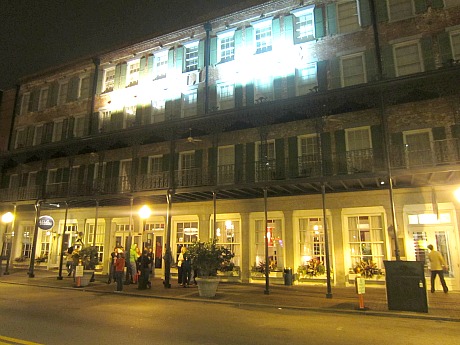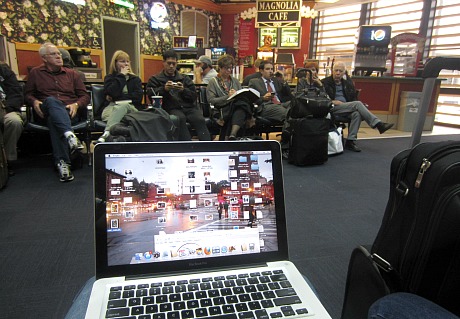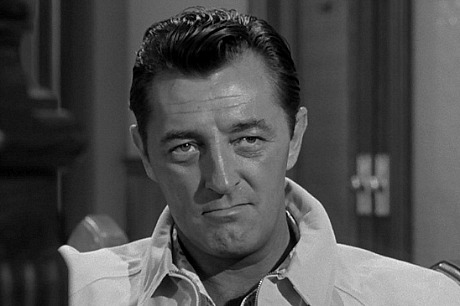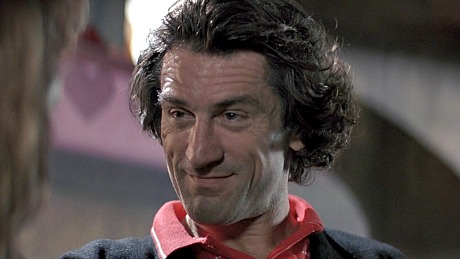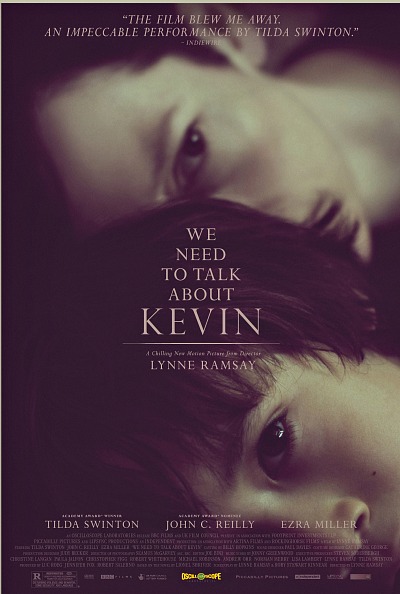Today’s activities include a small noon lunch thrown by my Savannah Film Festival hosts (which I’m late for as we speak) and some writing/filing this afternoon along with a little bike-riding around the city. There’s some kind of street party this evening along with a screening of The Artist. Maybe James Toback (who’s doing a q & a with Alec Baldwin tomorrow afternoon) will fly in today or tonight, and we can do a little carousing.

Thanks to the Savannah Film Festival and the Marshall House for allowing me to stay in rom #314 (i.e, the one with the desk, pictured last night) and not sending me back to the broom closet.

Breakfast/lunch atrium inside the Marshall House.
